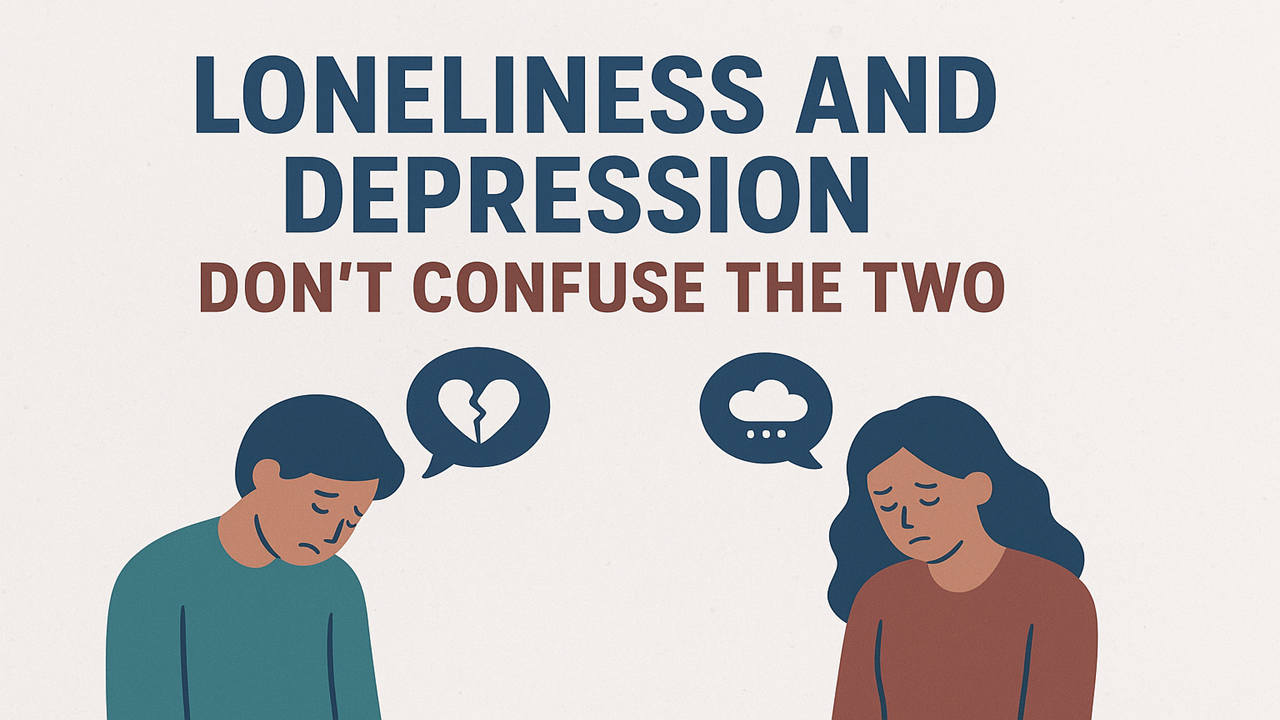
- 10 Jul 2025
- Psy. Ashish Pandey
The Silent Epidemic: Understanding and Overcoming Urban Loneliness
In the sprawling concrete jungles we call cities, a paradoxical phenomenon is quietly taking hold: urban loneliness. Despite being surrounded by millions, many city dwellers experience a profound sense of isolation. It's a modern-day paradox that deserves our attention, exploring its causes, its impact, and what we can do to foster genuine connection in a disconnected world.
Why Are We So Alone in a Crowd?
The roots of urban loneliness are multifaceted, stemming from the very fabric of city life:
Transient Populations: Cities are hubs of constant movement. People come and go for work, education, and new experiences, making it harder to build lasting relationships and deep community ties. The friend you made at the local coffee shop might be gone next year, and that constant turnover can make us hesitant to invest emotionally.
The Technology Trap: While smartphones and social media promise connection, they often deliver a curated, superficial version. We scroll through endless feeds, witnessing others' seemingly perfect lives, which can ironically amplify feelings of inadequacy and isolation rather than alleviating them. Digital interactions often replace real-world ones, diminishing opportunities for genuine human contact.
Lack of "Third Places": Historically, communities thrived around "third places"—spaces outside of home and work where people could gather informally. Think bustling town squares, local pubs, or community centers. In many modern cities, these spaces are dwindling, replaced by private, commercial establishments that don't inherently foster spontaneous interaction.
The Hectic Pace of Life: City life is synonymous with busyness. Long working hours, demanding commutes, and the constant pursuit of goals leave little time and energy for nurturing relationships. The sheer pace can make us feel like we're always rushing, with no time for casual chats or lingering connections.
Cultural Shifts: There's also a growing emphasis on individualism and self-reliance. While independence is valuable, it can sometimes come at the cost of communal living and reliance on others, which are crucial for combating loneliness.
The Hidden Toll: Impacts on Well-being
The effects of urban loneliness extend far beyond a fleeting feeling of sadness. It's a serious public health concern with significant implications for our overall well-being:
Mental Health: Loneliness is strongly linked to increased rates of depression, anxiety, and stress. The absence of social support can exacerbate mental health conditions and make coping with life's challenges far more difficult.
Physical Health: Believe it or not, chronic loneliness can have a detrimental impact on physical health, too. Studies have linked it to increased risk of heart disease, weakened immune systems, and even a shorter lifespan. It's as harmful as smoking 15 cigarettes a day!
Reduced Quality of Life: A lack of meaningful connections can lead to feelings of emptiness, apathy, and a general decrease in life satisfaction. When we don't feel seen, heard, or valued by others, life can lose some of its vibrancy.
Breaking the Chains: Strategies for Connection
While urban loneliness can feel overwhelming, it's not insurmountable. There are proactive steps we can take to build meaningful connections in the city:
Be Intentional About Connection: Don't wait for connection to happen; seek it out. Join clubs, volunteer organizations, or local interest groups that align with your passions. This provides a shared purpose, making it easier to strike up conversations and form bonds.
Embrace Your Local Community: Explore your neighborhood. Support local businesses, frequent community parks, and attend local events. Even small interactions with baristas, shopkeepers, or fellow dog walkers can build a sense of belonging over time.
Mindful Technology Use: Use technology as a bridge, not a barrier. Instead of endless scrolling, use social media to plan meetups, join local groups, or reconnect with old friends. Prioritize real-life interactions over digital ones.
Cultivate "Weak Ties": Not every relationship needs to be a deep friendship. "Weak ties"—acquaintances you see regularly, like your gym buddy or the person you always chat with at the dog park—contribute significantly to a sense of belonging and can sometimes evolve into stronger connections.
Be Open and Vulnerable: It takes courage to open up, but sharing your authentic self is key to forming genuine connections. Don't be afraid to initiate conversations, express interest in others, and be a good listener.
Practice Self-Compassion: If you're experiencing loneliness, know that you're not alone in feeling this way. Be kind to yourself, acknowledge your feelings, and celebrate small victories in your journey toward connection.
Urban loneliness is a complex challenge, but it's one we can address by understanding its dynamics and actively seeking out genuine human connection. By being intentional, embracing our local communities, and using technology wisely, we can transform the isolating city into a place where true belonging flourishes.





